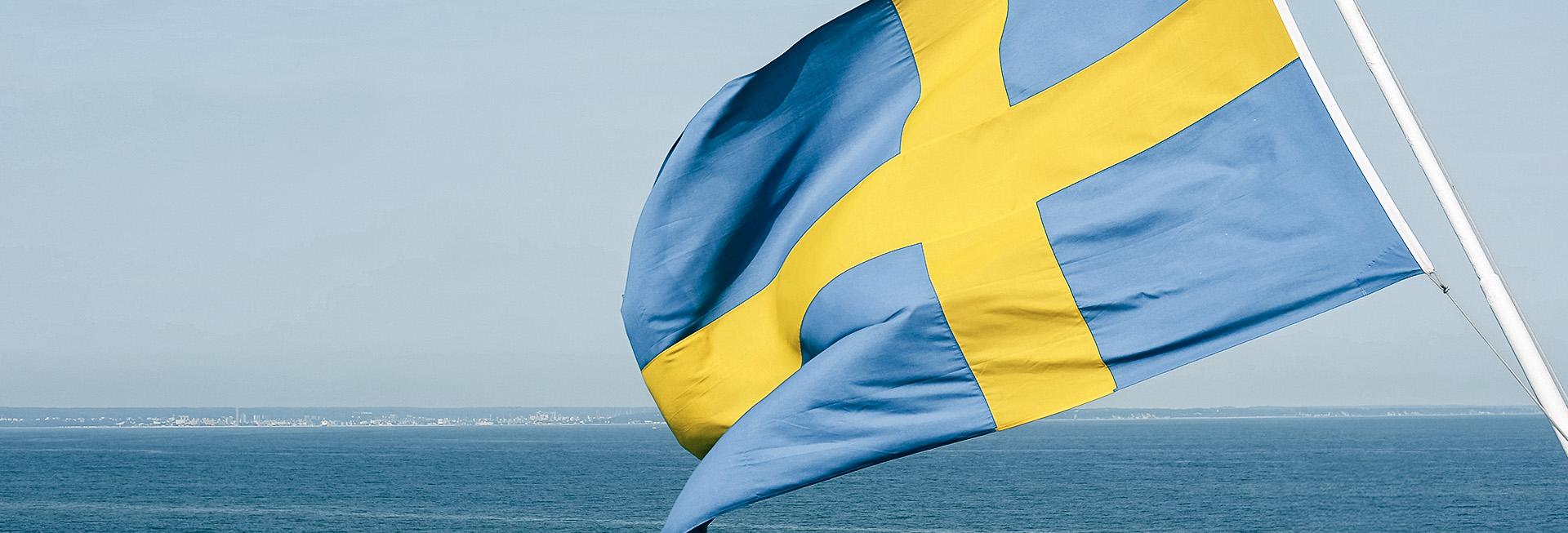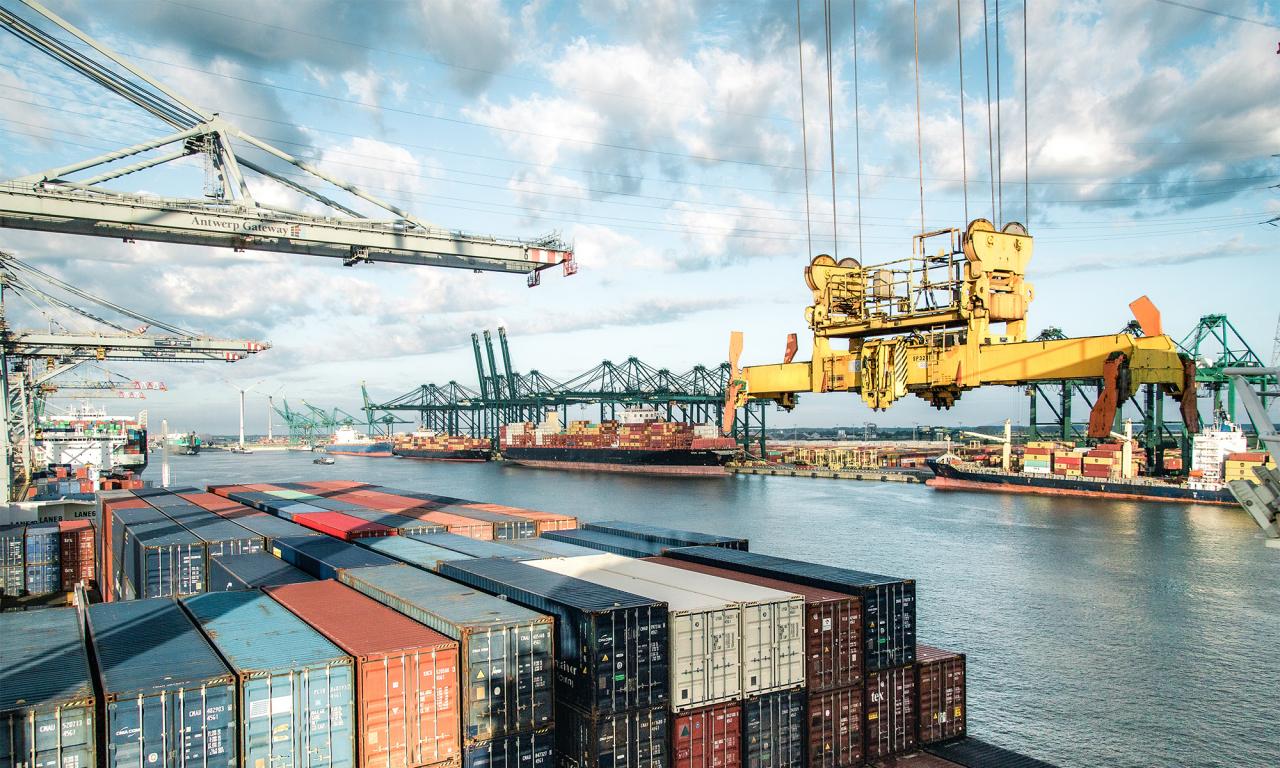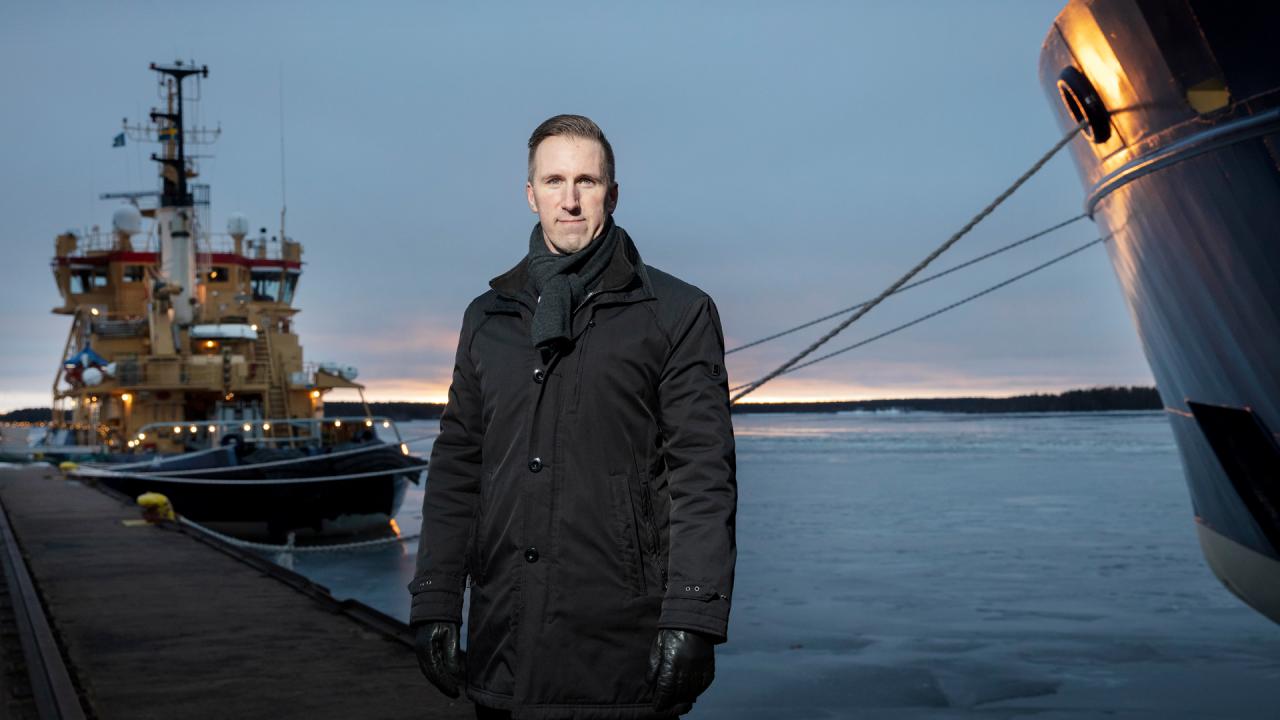“In war, we can only count on Swedish flagged ships.”

What is the value of a Swedish flag on a ship, and how can we boost the competitiveness of shipping? Chief of the Royal Swedish Navy, Ewa Skoog Haslum, and the Swedish government’s investigator for the competitiveness of Swedish shipping, Rikard Engström, share their thoughts.
In recent decades, many Swedish shipping companies have registered their vessels under foreign flags, usually for economic reasons. This development means Sweden may end up with a merchant fleet that is inadequate for the supply of necessities in the event of a crisis. It could even affect national security. Chief of the Royal Swedish Navy, Ewa Skoog Haslum, is among those raising concerns in the debate about Swedish flagged vessels.

“The great importance of the merchant fleet for Swedish total defence was made clear during both World Wars, and we’re hardly less dependent today considering the increase in trade and our lower degree of self-sufficiency,” she says.
If Sweden joins NATO, the need to safeguard maritime transport will likely increase. As a member, Sweden may not only have to transport NATO formations across the Baltic Sea, but also assist warships from other member countries with services such as bunkering and towage.
Supply in the event of war
Shipping is especially important in wartime, due to the uncertain availability of functioning rail networks, bridges and ships from other countries. Even in peacetime, Sweden is utterly dependent on shipping. Ewa Skoog Haslum emphasizes the necessity of a strong Swedish merchant fleet for both military purposes and national supply.
“In the event of war, we can only count on Swedish flagged vessels,” says Skoog Haslum, before adding:
“The RoRo and RoPax vessels that connect Sweden with other Baltic Sea states, and the coastal tankers needed for industry along the Norrland coast are very important. For military defence, merchant vessels are not only needed both as auxiliaries, i.e. ships temporarily converted into naval vessels, but also for shipping fuel and transporting ground combat units.”
The Chief of the Navy also highlights an additional reason in favour of the Swedish flag, namely that ships flying it are under the protection of Swedish warships even during peacetime – both in Swedish national and international waters. This does not apply to foreign-flagged vessels.
The competitiveness of Swedish shipping
The Government has also highlighted the crucial role shipping plays in Sweden’s security of supply.

In June 2023, Rikard Engström was tasked with investigating and proposing measures regarding stamp duty and tonnage tax, among other ways to strengthen the competitiveness of Swedish shipping. The results will be presented on 29 December 2023, after which it will be up to the government to decide on how to proceed with the proposals.
“When a vessel is entered in the Swedish register of ships, there is a charge equivalent to 0.4 percent of the vessel’s mortgage. Even though this charge may seem small both in terms of percentage and the amount, it sends an important signal,” says Rikard Engström.
Since the tonnage tax was introduced in 2017, the decrease in Swedish-flagged vessels has slowed a little.
“Now we need to get the trend on the rise, and I regard the chances as positive. When we saw the rush to flags of convenience, no one ever thought we would see a war in our own neighbourhood, nor a pandemic. But now we’re in an entirely different situation.”
It’s easy to see that further flagging-out would not be good for Sweden LTD”
Valuable shipping know-how
However, tax system improvements alone will not make Swedish shipping competitive. A healthy Swedish maritime sector not only requires expertise on board ship, but also in its shipping companies, authorities, banks and insurance companies.
“We also need access to our own repair yards and robust logistics infrastructure in our ports. Thus from the Navy’s perspective, it’s important for the entire maritime sector to grow and that we jointly strengthen the sector’s ability to operate in peacetime crises such as pandemics, the risk of war and war itself,” says Ewa Skoog Haslum.
“It’s important to note that Swedish flagged vessels are unevenly spread across the industry’s segments. We have very few vessels, if any at all, in segments such as container ships and pure bulk carriers, and the number of tugs is also a matter for concern. However, things look much better in segments such as ferries and tankers. If this is good enough, I cannot say, but it’s easy to see that further flagging-out would not be good for Sweden LTD,” says Rikard Engström.
What shipping companies think

How do you reason about the choice of flag?
Elvir Dzanic, CEO, WALLENIUS SOL:
“The selection of the Swedish flag for our fleet comes naturally. Our company, which has evolved from Swedish heritage, operates in environmentally sensitive areas and prides itself on the quality that the Swedish flag represents to our customers. It represents a legacy of technical innovations aimed at improving performance as well as reducing the environmental footprint. Nonetheless, we recognize that some aspects of this require modernization to stay relevant on the global scale. We look forward to seeing the result of the recent work being conducted on this topic”
Fredrik Hermansson, CEO, Lakeway Link:
“Security, quality, and strict compliance with regulations are fundamental to us. As a Swedish shipping company, we strive to fly the Swedish flag, but this requires the right conditions. A clear and long-term strategy from the flag state is crucial to ensure our position on the international stage. In choosing a flag, we look, among other things, at how we can have a cost-effective ship registry and what opportunities there are to recruit personnel who have the ability to transition from sea to land.”
Lars Höglund, CEO, Furetank:
”The choice of flag for the 10 ships Furetank has ordered is dependent on the ongoing investigation, its proposals, and the political responses that follow. The stamp duty must be removed immediately. In our case, the stamp duty represents an extra cost of more than 10 million Swedish kronor. This is a cost that we find impossible to justify from a business economic standpoint, especially given that it could be avoided.”



